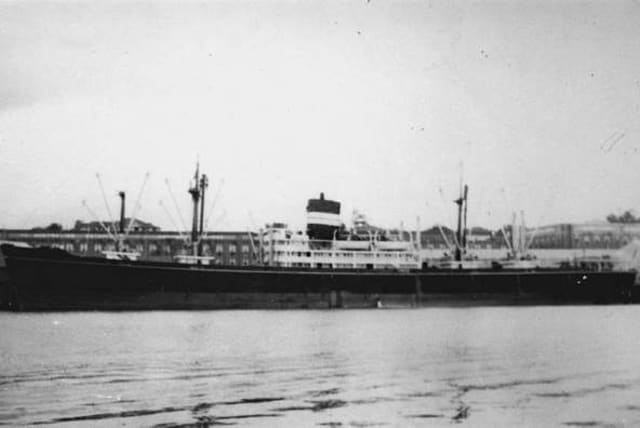Researchers find lost WWII sunken ship that killed 1,000 Allied POWs

An American submarine torpedoed the Japanese Montevideo Maru not knowing that there were more than 1,000 Allied POWs on board.
Researchers found the lost sunken Montevideo Maru ship that was sunk in WWII with more than 1,000 Allied prisoners of war on board.
The Japanese transport ship was found last week in the South China Sea after being missing for 81 years. It sank in 1942 after an American submarine hit it with torpedoes not knowing that there were POWs on it.
Most of the prisoners killed in the sinking were Australian, and the sinking of the ship is considered the deadliest sea event in Australian history.
The ship was sunk while on its way from Papua New Guinea to China, killing 1,080 people including 850 Australian prisoners, 210 civilians from 14 countries and 71 Japanese crew members.
People have searched for the lost ship for decades, and they finally found it last week aboard a ship that carried some descendants of people who were killed in the wreck.
The wreck was found by an expedition launched by Silentworld Foundation in support of Dutch deep-sea specialists, the Australian Department of Defense and the Montevideo Maru Society. The expedition took 12 days to find its target.
The finding may give families closure
"The discovery of the Montevideo Maru closes a terrible chapter in Australian military and maritime history," expedition leader John Mullen told Dive Magazine. "Families waited years for news of their missing loved ones before learning of the tragic outcome of the sinking. Some never fully came to accept that their loved ones were among the victims. Today, by finding the vessel, we hope to bring closure to the many families devastated by this terrible disaster."
Australian Prime Minister Anthony Albanese told ABC News that he hopes the discovery will bring comfort to the families of the victims.
Mullen told Live Science that as the ship is a war grave, there are no plans to disturb it, but it was unclear whether an attempt will be made to possibly retrieve remains for identification purposed.
Jerusalem Post Store
`; document.getElementById("linkPremium").innerHTML = cont; var divWithLink = document.getElementById("premium-link"); if (divWithLink !== null && divWithLink !== 'undefined') { divWithLink.style.border = "solid 1px #cb0f3e"; divWithLink.style.textAlign = "center"; divWithLink.style.marginBottom = "15px"; divWithLink.style.marginTop = "15px"; divWithLink.style.width = "100%"; divWithLink.style.backgroundColor = "#122952"; divWithLink.style.color = "#ffffff"; divWithLink.style.lineHeight = "1.5"; } } (function (v, i) { });

